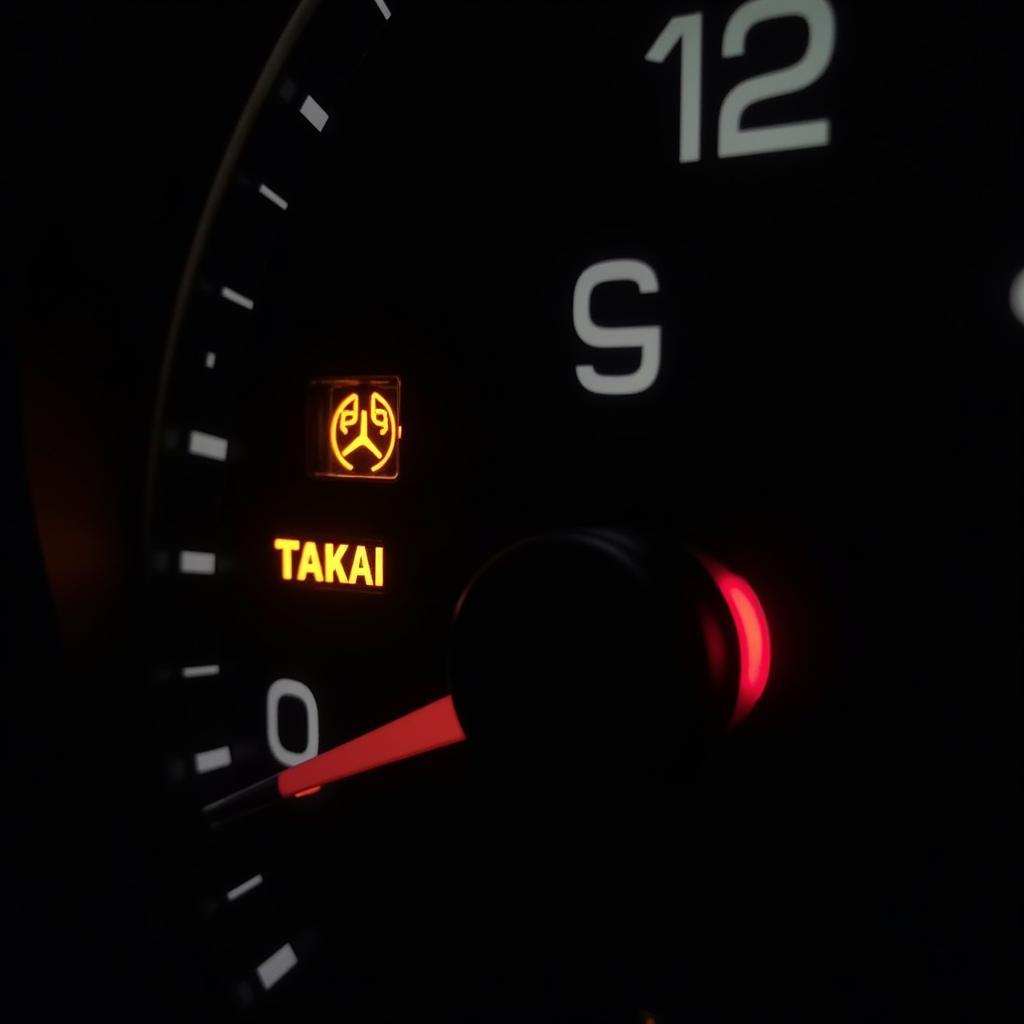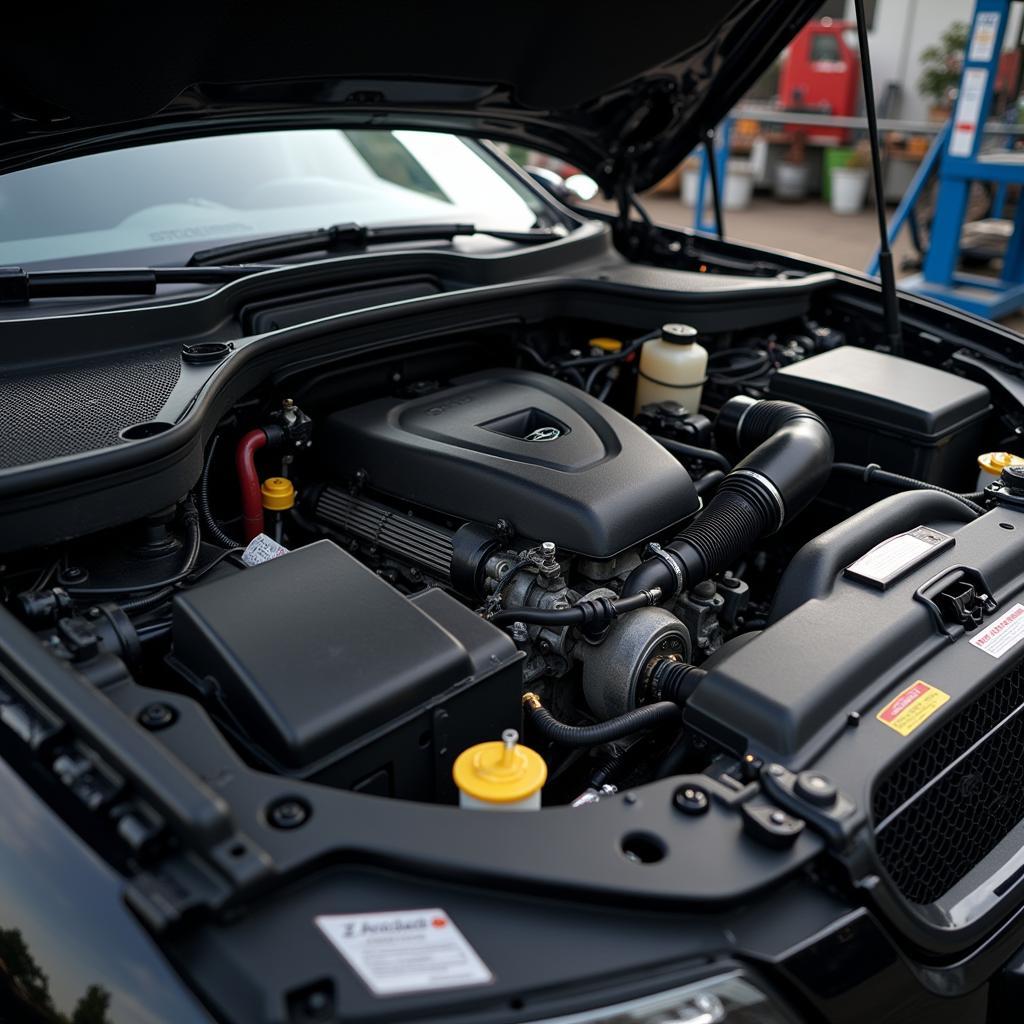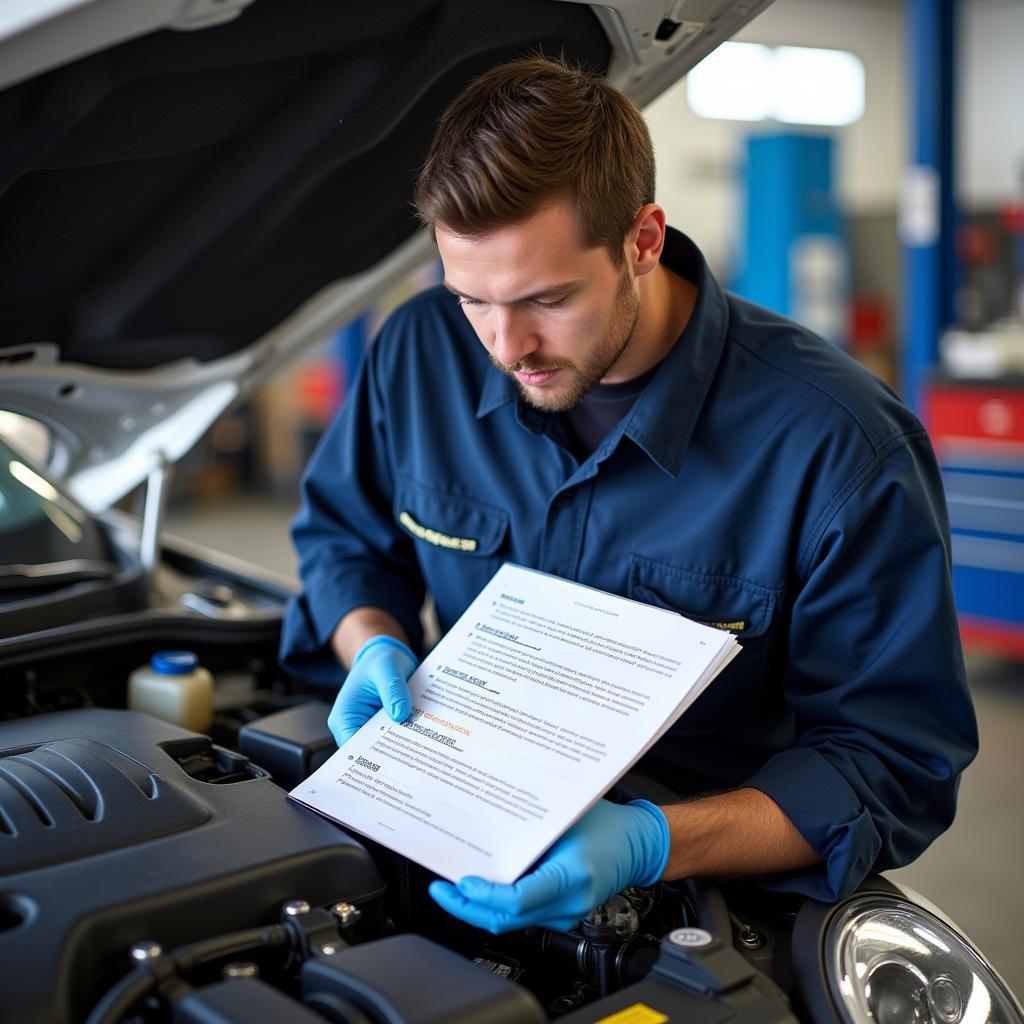Do I Need to Get a Car Service?
Knowing when your car needs a service can feel like navigating a maze. You want to keep your car running smoothly but don’t want to shell out for unnecessary maintenance. This comprehensive guide will help you understand the ins and outs of car servicing, empowering you to make informed decisions about your vehicle’s maintenance.
Understanding the Importance of Regular Car Service
Regular car servicing is like giving your car a health check-up. It’s not just about fixing problems but also about preventing them from arising in the first place. Think of it as an investment in the longevity and performance of your car.
By sticking to a regular service schedule, you can:
- Identify potential issues early on: Catching problems early can prevent costly repairs down the line.
- Improve fuel efficiency: A well-maintained engine runs more efficiently, saving you money on gas.
- Enhance safety: Regular checks on brakes, tires, and other critical components ensure your safety and that of your passengers.
- Maintain your car’s value: A well-maintained car has a higher resale value.
Decoding the Signs: When Does Your Car Need a Service?
While adhering to the manufacturer’s recommended service intervals is crucial, several telltale signs indicate your car might require a visit to the mechanic sooner. Keep an eye out for:
- Dashboard warning lights: These are designed to alert you to potential problems.
- Unusual noises: Any new squeaks, rattles, or grinding sounds could be a cause for concern.
- Fluid leaks: Check your garage floor for any signs of oil, coolant, or brake fluid leaks.
- Changes in performance: Noticeable drops in fuel efficiency, engine power, or braking performance warrant a checkup.
- Burning smells: Unusual odors coming from your car could indicate a serious problem.
 Dashboard illuminated with multiple warning lights, including check engine, oil pressure, and tire pressure.
Dashboard illuminated with multiple warning lights, including check engine, oil pressure, and tire pressure.
Manufacturer Recommendations vs. Driving Habits
Your car’s owner’s manual outlines the recommended service intervals for your specific make and model. However, it’s essential to factor in your driving habits. If you frequently drive in harsh conditions, like stop-and-go traffic, extreme temperatures, or dusty environments, your car will likely require more frequent servicing.
For example, if you often find yourself stuck in rush hour traffic, [when do i need to get my new car serviced] might be a question you should ask your mechanic. They can provide tailored advice based on your driving patterns.
Navigating the Service Maze: What to Expect During a Car Service
A typical car service involves a comprehensive inspection and maintenance procedures, which may vary depending on the service type and your car’s mileage. Here are some standard services performed:
- Oil and filter change
- Fluid top-ups (brake fluid, coolant, power steering fluid)
- Tire pressure and tread depth check
- Brake inspection
- Battery test
- Air filter replacement
- Spark plug replacement (as needed)
Your mechanic will also address any specific concerns you might have and perform diagnostic tests if necessary.
The Cost of Procrastination: Ignoring Car Service
Delaying car service might seem tempting to save a few bucks in the short term. However, this can lead to more significant expenses in the long run. Neglecting regular maintenance can result in:
- Major component failures: A small issue left unaddressed can snowball into a costly repair.
- Reduced fuel efficiency: A poorly maintained engine consumes more fuel, increasing your running costs.
- Safety hazards: Neglecting brakes, tires, or other safety-critical components can compromise your safety on the road.
- Voided warranty: Some manufacturers may void your warranty if you fail to adhere to the recommended service schedule.
 Car engine undergoing significant repair work, with parts disassembled and a mechanic working diligently.
Car engine undergoing significant repair work, with parts disassembled and a mechanic working diligently.
Conclusion: Don’t Wait for a Breakdown – Prioritize Car Service
Understanding the importance of regular car service and being proactive about it can save you time, money, and potential headaches down the road. By heeding your car’s warning signs, adhering to the manufacturer’s recommendations, and choosing a trustworthy mechanic, you can ensure your vehicle remains in optimal condition for years to come. Remember, a well-maintained car is a safe and reliable car.
FAQs
Q: How often do I need to service my car?
A: Refer to your owner’s manual for specific recommendations, but a general rule of thumb is every 6 months or 5,000-7,500 miles.
Q: What is the difference between a minor and major service?
A: A minor service typically includes an oil change, fluid top-ups, and basic inspections. A major service is more comprehensive, involving additional checks, replacements, and more in-depth inspections.
Q: Can I service my car myself?
A: While some maintenance tasks can be performed at home, it’s generally recommended to leave servicing to qualified mechanics, especially for more complex procedures.
Q: How do I find a reliable mechanic?
A: Ask for recommendations from friends or family, read online reviews, and look for certifications and affiliations with reputable organizations.
Q: What should I do if my car breaks down?
A: Pull over to a safe location, turn on your hazard lights, and contact roadside assistance.
For additional information regarding car servicing, check out these helpful resources:
Need help with your car’s service needs? Contact us today!
WhatsApp: +1(641)206-8880
Email: [email protected]
Our team of car care experts is available 24/7 to assist you.

